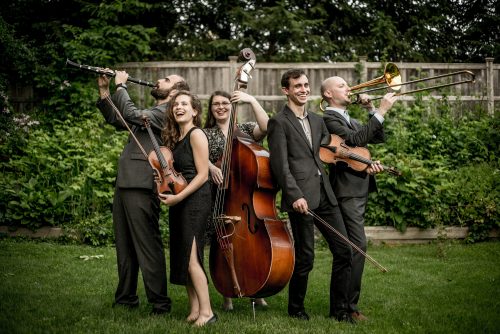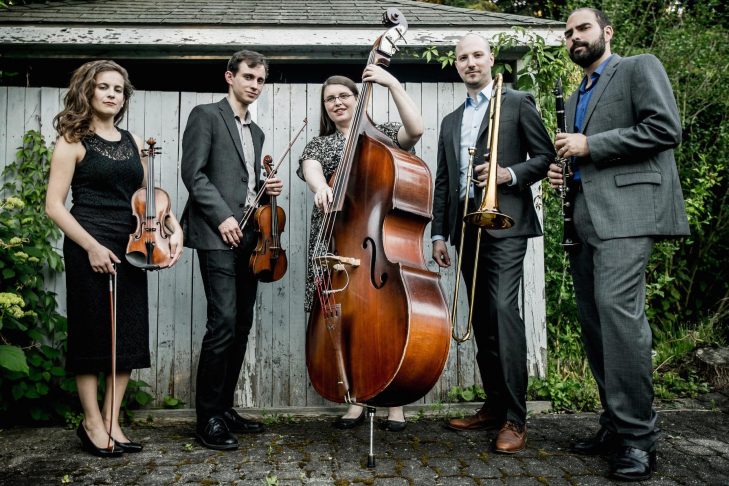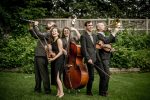Last month, Ezekiel’s Wheels Klezmer Band’s trip to the studio was made possible by a successful Kickstarter project and a grant from Club Passim. Nat Seelen, one of the group’s founders and its clarinetist, told JewishBoston about a new and exciting feature on this latest recording. “There’s singing! Until that point we had been a strictly instrumental klezmer band,” he said. “Last year we started working up new vocal material and practicing these new arrangements.”
It’s been over a decade since Seelen and Jon Cannon—a violinist and the other original member of the group—attended Brown University and discovered klezmer music on campus. The two young men joined Yarmulkazi—Brown’s klezmer band—and considered their four years in the band their musical apprenticeship. Cannon said that despite his grandfather’s connection to klezmer music both as a violinist and an avid fan of “Fiddler on the Roof,” he “had never considered playing klezmer myself until I got to Brown and saw a flier stapled to a lamppost indicating that the band was holding auditions. I thought it sounded more fun than a traditional orchestra and it had a cool name, so I tried out.”
Four years later, Seelen and Cannon were “total klezmer junkies.” After graduation they wanted to continue playing the music they had come to love and formed their own band. Through a combination of serendipity and determination, the new band started out with four members—a bass player, trombonist, violinist and clarinetist.
Seelen pointed out that there was no bass drum or drum set to set the rhythm for the group’s melodic instruments. “It took us a while to figure out our sound,” he said. “In our first six months we played tunes without a drum, a piano keyboard or a guitar. But we settled into a basic formula in which we got all of our chordal motion from these melodic instruments.” Seelen added that to listen closely to Ezekiel’s Wheels’ early music is to hear the violin determine much of the rhythm section. More chords came from the other instruments, which enabled the group to outline tunes together. “We figured if we could get [our sound] to work, something unusual and cool would happen,” he said.

The music came together and the group’s first audiences were rushing commuters in T stations. The group found it a productive way to rehearse and eventually acquired performer permits. Noted Seelen, “The audience was always changing so we tweaked the same songs over and over in front of a great live audience.” Their impromptu performances on T platforms also brought in some paying jobs. Eventually the group came to the attention of what was then the Boston Jewish Music Festival. (Since then the festival merged to become part of the Jewish Arts Collaborative.) The group went on to win the festival’s “Klezmer Idol” competition.




